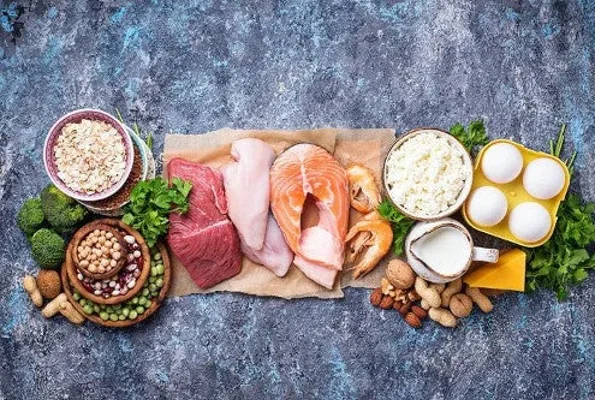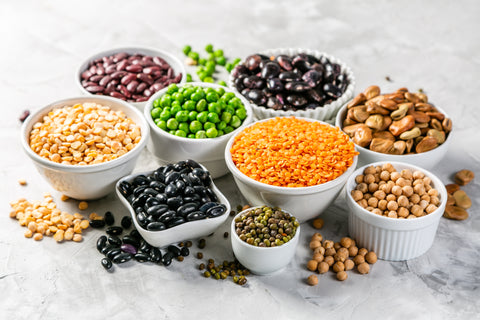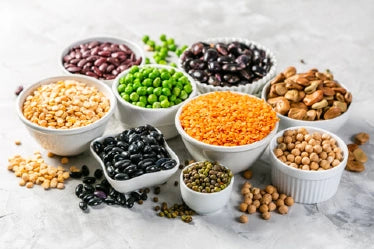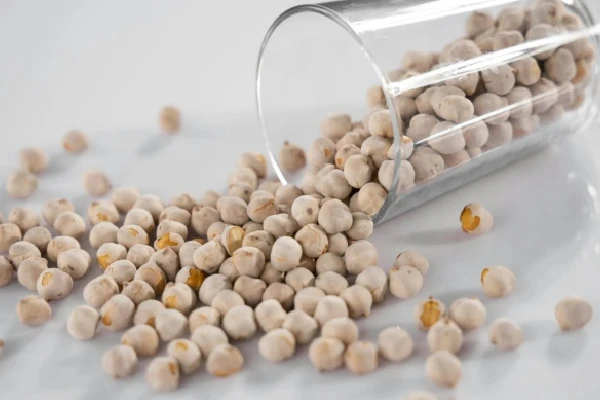How Protein Affects Your Gut Microbes
Monday Dec 5, 2022

How to Keep Your Gut Happy on a High Protein Diet
The High Protein Diet
High-protein diets have a long history, but when Atkins rose in popularity in the early 2000s, it paved the way for a plethora of protein fads that killed the low-fat diet trends of the 80s. Now Keto and Paleo products are more popular than ever. Since 2016, the packaged health food industry has grown 187% on the demand for protein alone.
And we're not wrong to be excited about it. As one of the three major macronutrients, protein is an essential building block for health. And compared to diets that focus on consuming fats and carbs, a short-term protein-focused diet has delivered on the promise of higher levels of satiation, enabling dieters to effectively cut the calories needed for weight loss. And based on studies of performance athletes, protein helps improve performance and build muscle mass, giving low-carb fans the lean bodies that they seek.
But the key there is “short term.” Not only has long-term high-protein diets failed to show a significant difference compared to any other diet, but it could also wreck your gut.
How protein works in the gut


You already know that the foods you eat can directly affect your gut environment and thus the microflora that live in it. However, there isn't much research on how the microbiota in our intestines metabolize and ferment dietary proteins.
What we know is this: enzymes in the mouth, stomach, and small intestine break down ingested proteins into amino acids and peptides. Our bodies absorb some of those amino acids to use as energy. What we don't use travels on to the large intestine where fermentation happens. Here, amino acids are transformed into metabolites, which affect your metabolism.
Some metabolites, like indole, benefit the body by protecting neural pathways and warding off multiple sclerosis. But, as is everything in the human body, it's all about balance, and an imbalance in metabolites can be harmful. An excess of the metabolite methanol, for example, can enter the liver where it metabolizes into the highly toxic formic acid. And researchers have found that high protein consumption promotes the production of harmful metabolites.
Diversifying your intake
But how can something good for your body also be wrecking it? It's all in the details. Protein in and of itself isn't bad for you; it's the volume that you consume and what comes with it. Diets high in protein, like the keto diet, tend to be low in fiber and high in saturated fat.
A study in 2010 compared the diets of children in Italy to that of children in rural Burkina Faso. The European diet was heavier in animal proteins, whereas the African diet relied more on high-fiber plant sources of protein such as peas. Researchers found Italian children had more gut bacteria associated with inflammation and disease whereas children from Burkina Faso displayed the opposite.


Fiber has long been touted as a cure-all for our digestive system woes, but only recently have we explored its effects as a prebiotic. We now know that besides keeping bowel movements regular, fiber is essential to the synthesis of short-chain fatty acids, which regulate metabolism and protect against inflammation.
The good news is that you don't need to be vegan to reap the benefits of plant-based proteins. Incorporating more vegetables and substituting a couple of animal protein meals with the plant-based variety every now and then can make a big difference. In fact, many pro athletes have turned to plant-based diets and seen even better performance.
Your protein needs depend on your personal health profile, such as activity levels and genetic makeup. It could be worth experimenting to figure out which kinds of proteins your body responds to best. But if giving up animal proteins is too difficult for you, or vegetable have never been your thing, maybe it's time to consider a fiber or prebiotic supplement.


